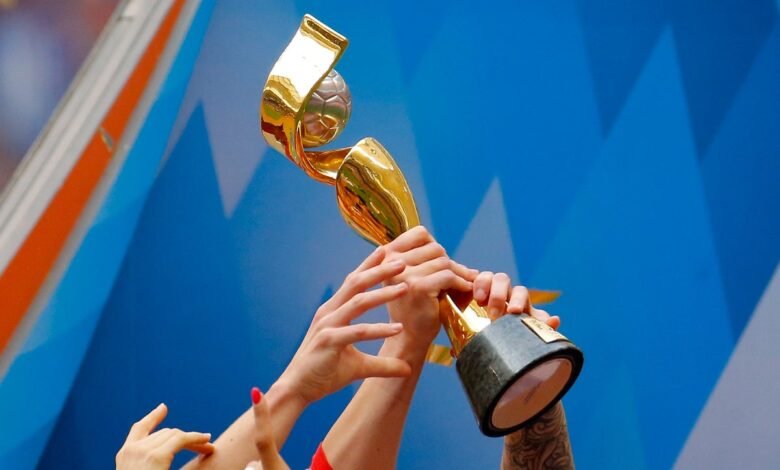‘They abuse us’: Workers making Fifa World Cup merchandise face harm, says report

[ad_1]
Female staff who produce Fifa merchandise for occasions such because the Women’s World Cup have endured pay beneath minimal wage, verbal abuse, unpaid time beyond regulation and threats of job loss in the event that they fall pregnant, in line with a brand new report by human rights researcher Equidem.
Equidem has criticised Fifa for not taking motion on a state of affairs that appears to go in opposition to the advances the match has been liable for, and president Gianni Infantino has been urged to increase “that progress to addressing the harms its women workers experience”.
Equidem has put its report into the context of the litany of migrant labour abuses that occurred as a result of males’s World Cup in Qatar and requested why there was no replace from a human rights subcommittee that was imagined to be set as much as assess the legacy of that occasion, elevating questions on Fifa’s expressed dedication to bettering working circumstances.
The report options interviews with girls staff in factories in Bangladesh that make official merchandise for Fifa occasions, and includes distressing testimonies together with verbal abuse and the unlawful denial of worksite childcare and maternity depart. Equidem heard a number of tales of ladies denied freedom of affiliation.
“We have a daily target to reach,” one employee mentioned. “The supervisor fixes our daily target. I make 60-80 pieces per hour. I can only go to the restroom after finishing my hourly target. When a lot of work piles up, they don’t let us go anywhere. They verbally abuse us. I work for 10-12 hours a day at my sewing machine. Today, my supervisor told me to give 80 pieces per hour, but it was quite difficult to make 80 pieces. I made 60 pieces per hour. He shouted at me several times.
“I can’t keep my son with me. I work between eight and 12 hours every day. Who will look after him? I searched for someone to leave my son with when I went to work, but I did not get anyone. We don’t have a childcare room in our factory. My son lives in Dhaka with my mother-in law and father-in-law.”
Workers described a typical follow of being advised they’d lose their jobs in the event that they grew to become pregnant throughout the first two years of employment. One girl employed as a stitching machine operator defined: “When I started working here, the factory doctor told me not to have babies for the first two years. I was told that after completing two years, I can have children. If I get pregnant before that, I will have to resign. They will not give me any leave.”
Some staff spoken to by Equidem reported that they didn’t receives a commission any maternity depart in any respect, though they’re imagined to be legally entitled to 4 months, making it a transparent violation of Bangladeshi legislation.
Equidem’s CEO Mustafa Qadri states: “After the Men’s World Cup this past year in Qatar, FIFA pledged to set up a human rights subcommittee that would assess the legacy of the 2022 tournament, although there has been no further update as to the status of that assessment, nor its learnings. Equidem urges FIFA to extend its expressed commitment to improving working conditions to women workers in their apparel supply chains.
“Yet, the world has seen significant advances in pay parity for women players, including making the Women’s World Cup more professional, ensuring equal regulations and conditions, and fair distribution of prize money to players. The United States team, after years of negotiations, public battles, and court filing won an equal pay deal that makes them one of the best-paid national teams in the world.
“The FIFA Women’s World Cup 2023 brings with it many positive improvements for its players, and it is crucial that FIFA extends that progress to addressing the harms its women workers experience. FIFA has the power, money, and resource to address this at the systemic level, and we will keep monitoring their global supply chains until it does.
“This movement toward gender parity within FIFA, signals a heightened commitment within the organisation to fair conditions for women players—on par with their male counterparts. This should extend to all women, not just those under the stadium lights.”
A Fifa spokesperson mentioned: “FIFA has stringent labour rights requirements for companies producing FIFA-licensed goods and takes any allegation of labour rights abuse in its supply chain very seriously. FIFA is in contact with both Equidem and the respective companies to further investigate the matter.”
[ad_2]
Source link





